Travel Thursday: 7 Cultural Items Common To All Nigerians
Editor's note: Nigeria is filled with people of diverse cultures. However, in our differences, there are some sameness. Legit.ng contributor, Pelu Awofeso points out the cultural items that are common to most of Nigeria, no matter which part you travel to.
Nigerians like to think they are different from one another, especially on the basis of ethnicity and religion. But the truth is that we have a lot in common than we care to acknowledge by virtue of our lifestyles and collective history.
Travelling as frequently as I do (by road and with a backpack) affords me the opportunity to compare and contrast the many-sided aspects of Nigerian life. I am able to see what the different regions and tribes have in common; and what they have in common but offer with slight variations. These items have been preserved over centuries and, happily, they endure to date. Below is a short list of the cultural threads that bind us as Nigerians:
READ ALSO: Why A Lion Is Just Bushmeat
1. Food
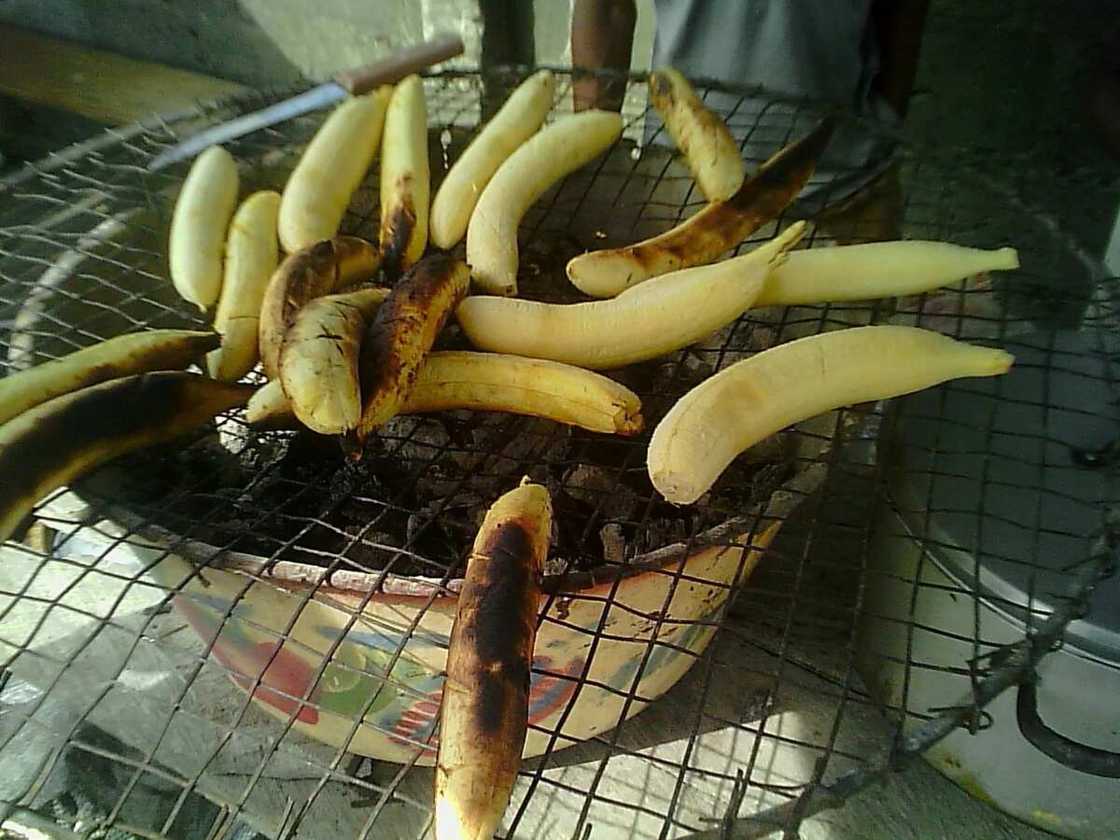
Nothing seals our similarity as Nigerians than in the foods we eat. Breads take different shapes, sizes and texture as I cross inter-state boundaries; rice goes from being served with stew (south-west) to being served with pepper-soup (south-south); roast yams and plantain are served with chicken, spiced stew or fish, depending on whether you’re eating them in Uyo or Port Harcourt; and bean cakes, pap, groundnuts come with their own flavours and variants, from Ife to Benin City. Up in Nigeria's northern region, masa (made from corn) is a breakfast staple. It's fried like bean-cakes, in a circular custom-made 20-hole kitchenware. From the beginning to the end, the process of making masa takes roughly seven minutes; and when done, it is usually served with a generous helping of stew, sauce, or vegetable soup. I understand in some parts of the country, it is also served with suya or honey.
2. Raffia houses
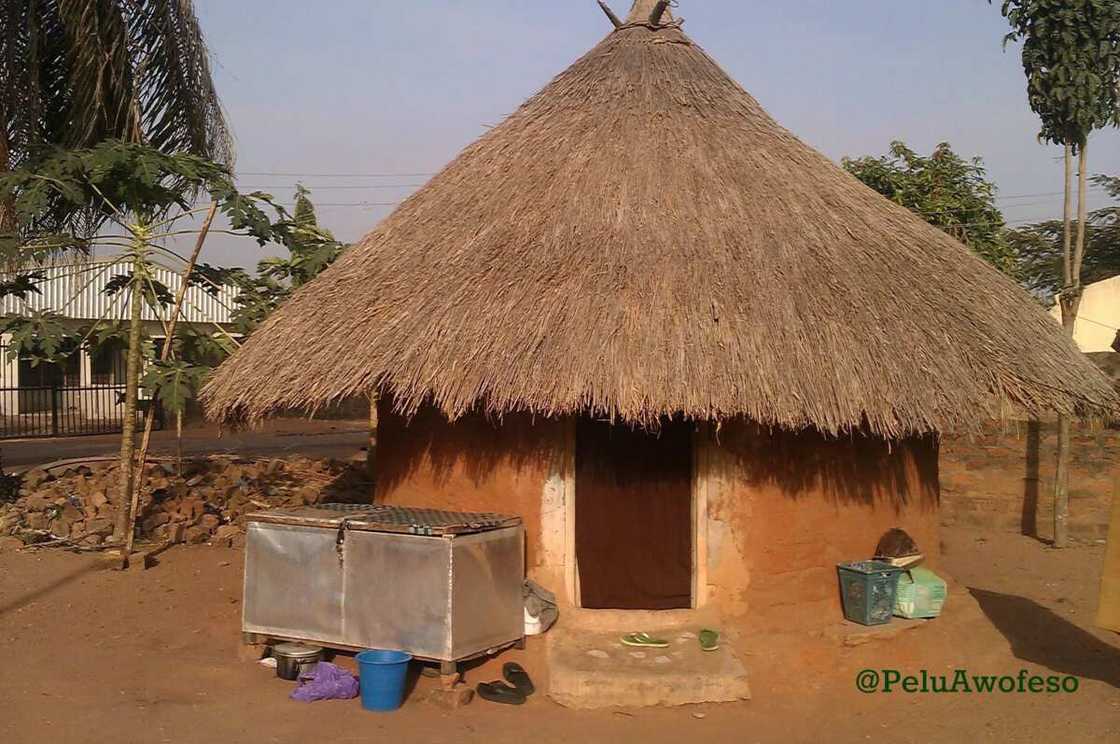
Nigeria is packed with traditional shelters made from raffia palm. Across the country, I have seen relaxation centres built with local materials, raffia palm being one of them. In Makurdi, mud-houses exist side by side with cement-type houses, all of which give the Benue State capital a unique outlook. In Badagry (Lagos State), for example, the areas between Topo and Ajido are good places to see these huts in their numbers. Depending on when you visit, the view also includes locals tilling the soil ahead of the planting season, some paddling their canoes back home from a fishing trip, and others just generally taking a nap under the surrounding vegetation.
[article_adwert]
READ ALSO: 5 Most Popular Fish Markets In Lagos
3. Sponges
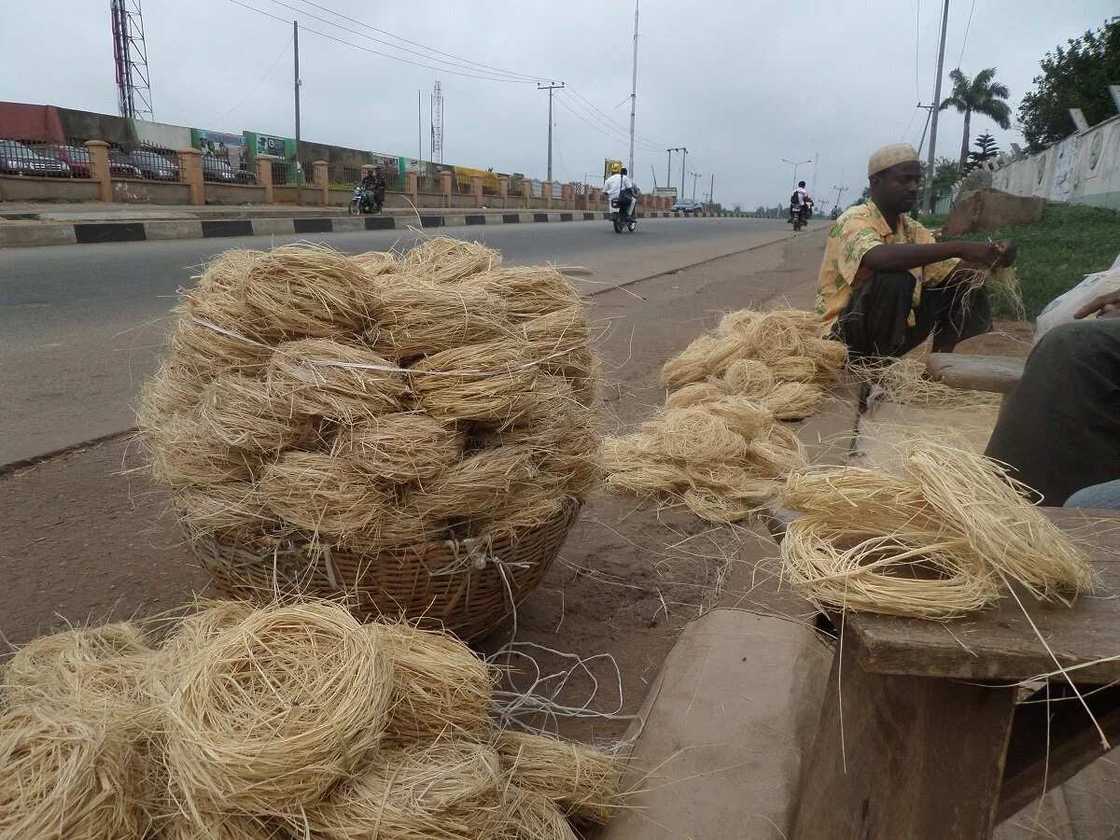
Locally-made sponges have been a common feature of Nigerian households for ages (possibly six out of ten Nigerians will recall a childhood when parents scrubbed them with this bathroom accessory). It is known as kankan in the southwest and soso in the North. But owing to modernization and a globalised economy, they are gradually losing their appeal among Nigerians, who now prefer the synthetic (and softer) alternatives. But there is still a small army of Nigerians who remain loyal to the local types, serviced by an equally committed band of ‘producers’. You will find the latter in the Sabo area of Ibadan, for example.
4. Palmwine
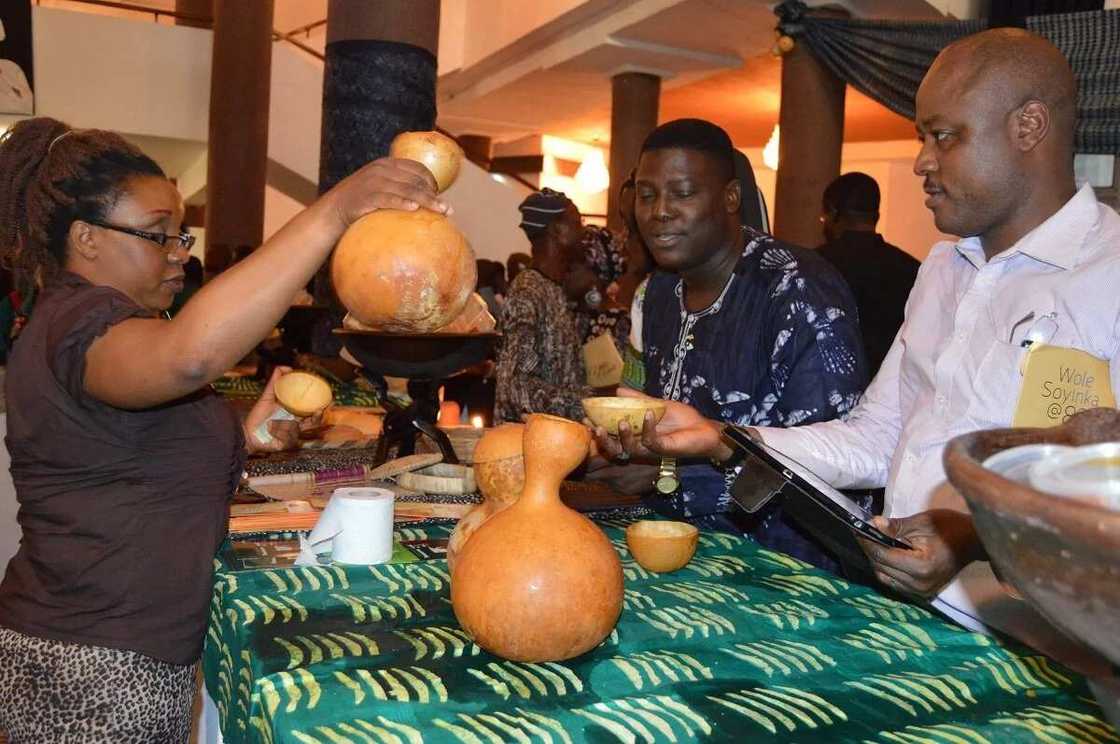
Palmwine is a regular feature in social circles in Nigeria. Served mostly in small calabash cups, they are now being produced in bottles in limited quantities. There are many palmwine tappers and sellers all over the country. In Uyo, the cups are called Ukpe (I am told that chiefs reserve the right to use a cow horn for the same purpose). Interestingly, there is a belief among locals that palm wine prevents an attack of malaria.
READ ALSO: 10 Tasty Nigerian Dishes You Must Try
5. Kola nuts
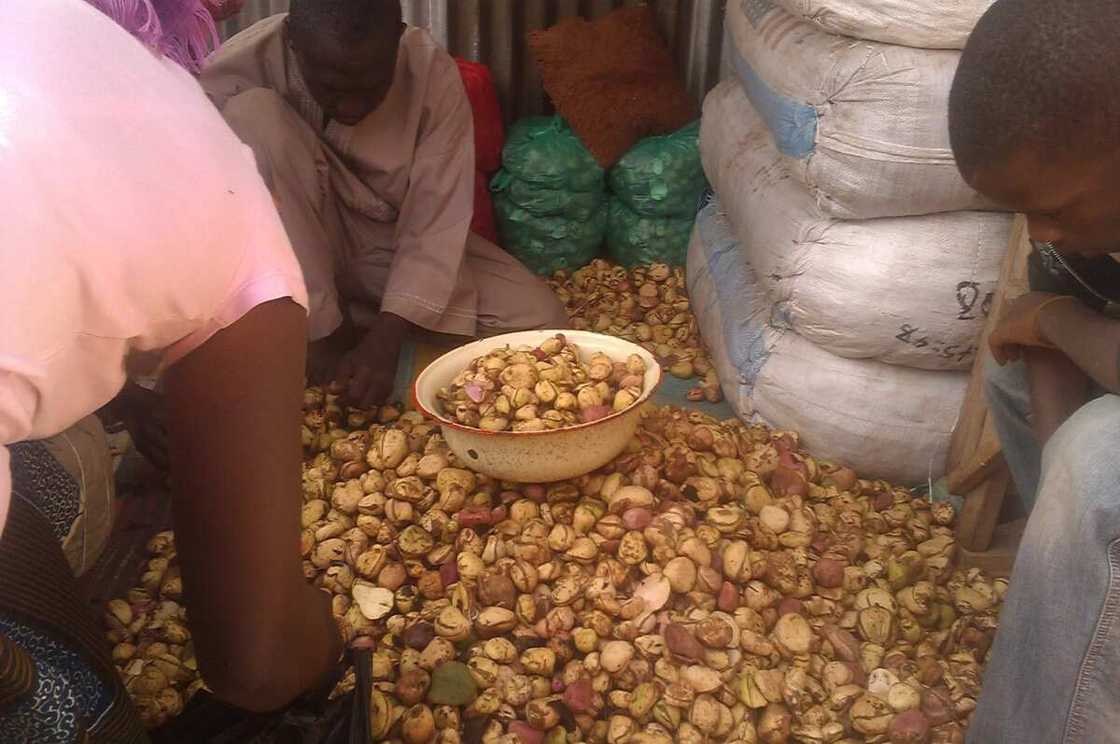
Traditional (weddings and child-naming) ceremonies in Nigeria are incomplete without kola nuts. “Kola nut is so important in the social, religious and cultural life of the people,” a recent piece in the Vanguard says. “It is said that at some point during pre-independence Nigeria, when the nation’s founding fathers looked for a common symbol acceptable to all Nigerians that would serve as a national icon on the country’s coat of arms, the consensus was kola nut.”
6. Herbal medicine
Every region in Nigeria has its own dose of traditional medicine, sold and dispensed by very enterprising vendors, from Lokoja to Onitsha. In Abeokuta, I met Iya Ibeji in her shop in Kuto area; she has been an herbal medicine practitioner almost all her life. Today, she is one of about 40 traders in the market, who dispense herbal remedies to the city’s residents who believe in the potency of alternative medicine. “I have operated from this spot for nearly 20 years,” she says. “The beauty of herbal medicine is that it deals with illnesses once and for all as opposed to orthodox medicine, which doses work in cycles.”
7: Calabashes/Pottery
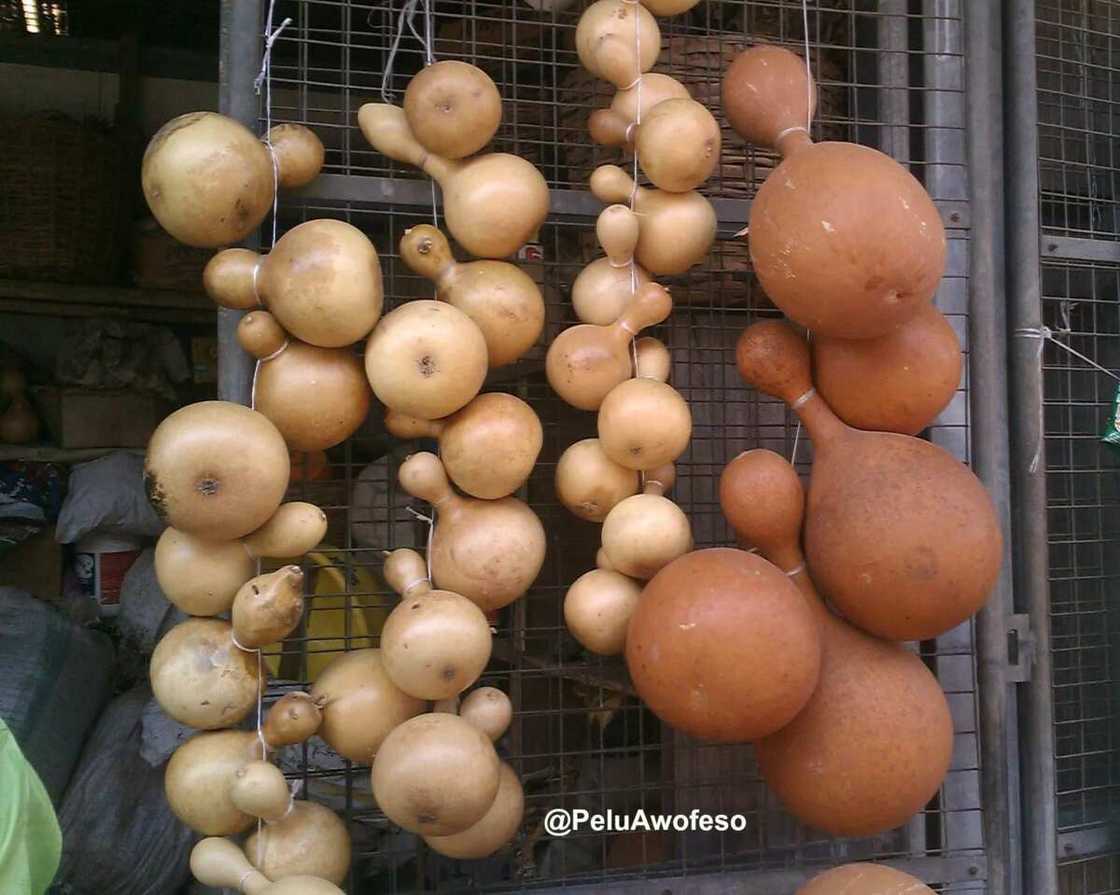
Whether as pots, plates or containers, calabashes and potteries have served Nigerians for ages. I have seen calabash carvers in many cities—from Kaduna to Ilorin. Though they remain in production in various locations nationwide, they face the threat of going into disuse owing to modern lifestyle tastes.
READ ALSO: 10 Fun Things To Do On A Rainy Day In Lagos

Pelu Awofeso is a winner of the CNN/ Multichoice African Journalist Awards for tourism reporting. He has published three books based on his travels around Nigeria.
Source: Legit.ng


